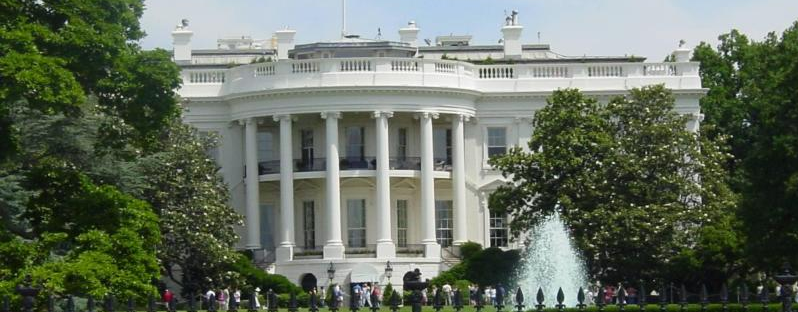Open Thread: The Case of Fake Federal Personnel in the Navy Yard [UPDATE-1]
[NB: check the byline, thanks. Update(s) if any will appear at the bottom of this post. /~Rayne]
This thread is for all discussion related to the bizarre case in Washington D.C. which began to unfold yesterday afternoon/evening with a raid on an apartment building:
BREAKING: Two DC men — Arian Taherzadeh and Haider Ali — have been arrested for posing as federal agents and giving gifts to Secret Service agents, including one assigned to the First Lady’s security detail! https://t.co/FlQqKgKkjX
— 7News DC (@7NewsDC) April 7, 2022
Mike Balsamo-Associated Press had one of the earliest reports:
The FBI activity was connected to two arrests made this evening in a pretty wild case. The two men are accused of posing as DHS agents & giving actual Secret Service agents and officers – including one on the first lady’s detail – gifts & free apartments. https://t.co/42YiBLCRX7 https://t.co/INQ4rlyQ5A
— Mike Balsamo (@MikeBalsamo1) April 7, 2022
In a nutshell, two men have been arrested for impersonating federal employees after the U.S. Postal Inspection Service began an investigation into the alleged assault of a postal carrier in/near the building raided yesterday in the D.C. Navy Yard area.
I don’t even know how to categorize this story yet. On the face of it I’m going with this being an intelligence story.
Can’t even be certain whose intelligence it is at work if this is indeed an intelligence story:
– one person arrested has a Persian (Iranian?) name;
– the other person arrested has an Arabic name;
– a third person mentioned during the course of reporting has a Russian/Belarusian name and their gender hasn’t been clarified;
– the person with a Persian name is linked to a mess of corporations, some located in the Midwest, linked to yet more persons who may/may not be related to this unfolding case;
– there’s a lot money involved though it’s an open question whose money it is;
– there are expensive professional office spaces involved;
– the suborning or bribery of Secret Service personnel is really, REALLY problematic;
– the amount of detail generated to create this operation/program suggests even more money involved.
Bring everything you have about this developing story to this thread along with any other stray cat and dog topics.
If there are updates to this story they will appear at the bottom of this post.
~ ~ ~
UPDATE-1 — 12:30 AM EST 08-APR-2022 —
No big developments, just a preliminary timeline based on news reports and the affidavit filed with D.C.’s district court (affidavit via Google Docs).
2006 — Incorporation of On Point Productions, LLC, in Missouri by Arian Taherzadeh.
June 11, 2018 — first post on United States Special Police Facebook page.
March 1, 2019 — listed by International Association of Police Chiefs as “Taherzadeh, Arian, Special Agent, US Special Police” in Washington, D.C. [Source (pdf)]
September 23, 2019 — On Point Productions, LLC name changed to US Special Police, LLC in Missouri.
October 16, 2019 — archive date of USSP website (archive is empty).
early 2021 — “Metro Police did a search of Taherzadeh’s unit when a person from a surrounding apartment building made a call reporting a sighting of firearms in his 3-bedroom corner unit through an open window.” [Source]
Febuary 2021-January 2022 (TBD) — At some point during this period of time, Taherzadeh introduced himself to Witness 3, a Secret Service member, as an HSI agent working in a gang unit with DHS.
Febuary 2021-January 2022 (TBD) –Taherzadeh told Witness 5, a Secret Service member, he was with HSI.
June 2021 (TBD) — Taherzadeh introduced himself to Witness 4, a DHS-HSI Document Analyst Expert, and told then he knew they were with HSI or US Citizenship Immigration Service. Taherzadeh told Witness 4 he was undercover for HSI which Witness 4 couldn’t validate.
July 2021 — Taherzadeh told Witness 1 later interviewed by FBI that he was a special agent with Homeland Security Investigations (HSI), that Ali was with HSI as well.
July 4, 2021 (TBD) — Witness 2, a Secret Service agent, was introduced to Taherzadeh and Ali as HSI agent and analyst respectively.
January 2022 (TBD) — Witness 5 moved out of apartment Taherzadeh had provided; Witness 5 saw Taherzadeh move “law enforcement and computer equipment” into the vacated apartment.
February 2, 2022 — Taherzadeh sent Witness 2 a photo claiming he was attending HSI training; investigation determined it was a stock photo.
March 14, 2022 — U.S. Postal Inspector (USPIS) began investigation into alleged assault of mail carrier; inspector was told Taherzadeh and Ali, believed to be DHS personnel, may have been witnesses.
TBD, 2022 — USPIS interviewed Taherzadeh and Ali who made claims they were DHS/HSI/”special police”/deputized/working on gangs and January 6 investigation.
April 6, 2022 — “A member of building management, Kelly Cianciola, sent a statement to Crossing DC tenants around 11:30 a.m. Thursday claiming that the 4:00 p.m. raid came after search warrants were presented to front desk staff due to an FBI investigation.” [Source] (Why the heads up?)


